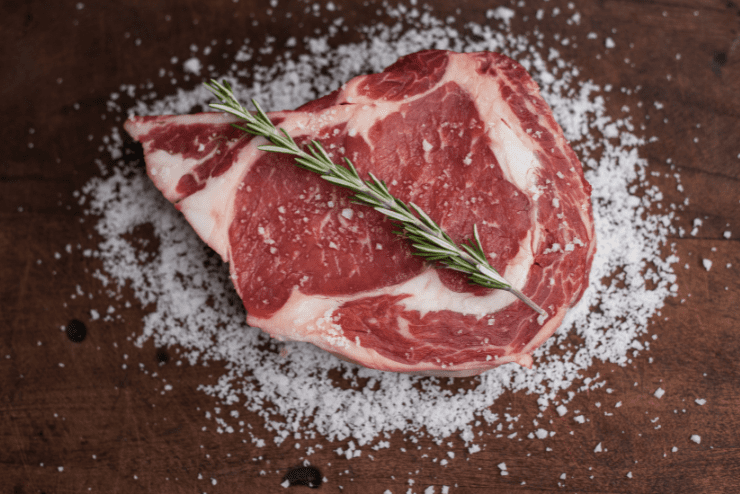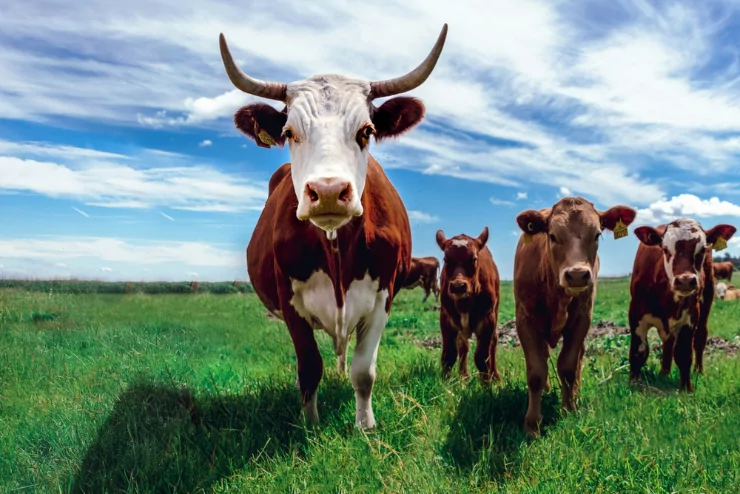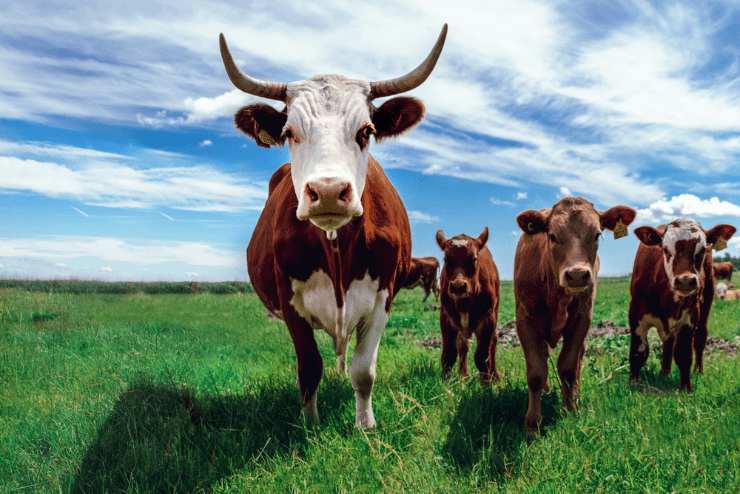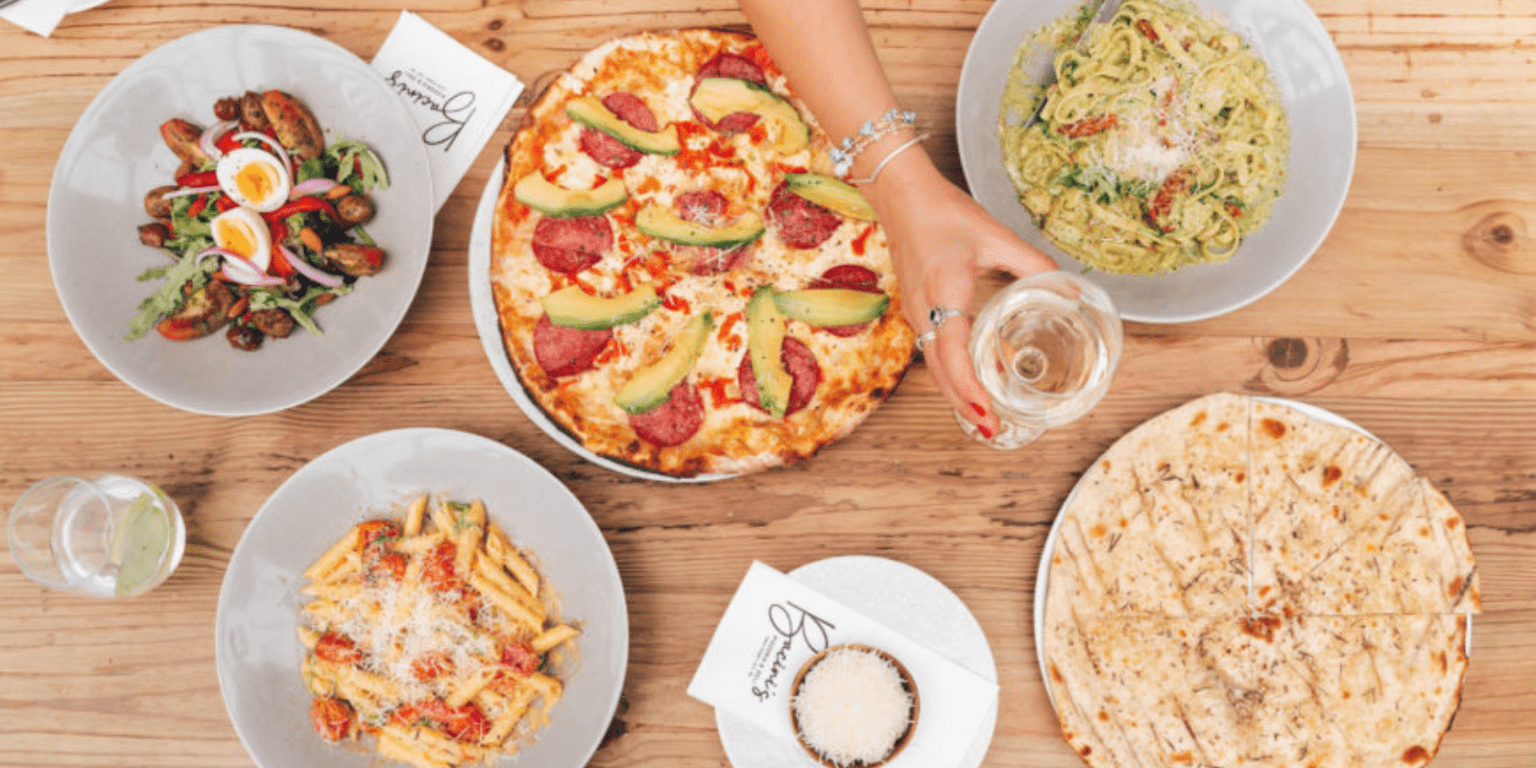By Jessica Merton, Founder of Foodhub
If you’ve been in the city bowl this week you’ll have caught wind (or rather, smell) of the Cape Town cattle ship and the dire situation those 19,000 cows were stuck in. But let’s not brush it off as someone else’s issue. Here’s the real stink – about 90% of commercial cows in our country endure similar conditions for 4 months of their lives, not to mention those who work in these conditions for their whole lives.
Voting with your fork can transform this narrative. Farmers are often bound by ‘BigAg’ and huge debt and can’t change these food chains easily. The power for change lies with us – the consumers. Let’s embrace the chance to make informed choices.

The beef with how we treat our cows
First, we need to understand about feedlots: they’re essentially prepping animals for the butcher, efficiently. In South Africa, it’s a routine – cows roam the fields until they hit around 180-240 kilograms, at around 6-7 months. Then they are sent off to the feedlot for +/-4 months where – often crammed into tight spaces on a concrete floor – they are fed a mix heavy on soy and corn for that perfect weight and marbling. When you hear “marbling”, think feedlot.
However, cows aren’t built for a grain diet – it messes with their digestion and, together with the cramped conditions of the feedlot, leaves them stressed and sick. Many are treated with chemical compounds including antibiotics (tetracyclines for enteric, penicillins for bacterial and sulphonamides for respiratory and UTIs), parasite control (Amtrak, Cypermetrhin, Ivermectin), feed boosters (Monensin, Zilpaterol) and oestrogenic growth enhancers (oestrogen implants and Trenbolone Acetate).

Transform the narrative: Vote with your fork
In an ideal world, we’d all be hands-on with the animals we eat, respecting their lives and our surroundings. But let’s be real, that’s not always doable or sustainable. The next best thing? Get your meat from farms committed to animal and environmental welfare.
Cape Town has meat suppliers committed to doing things the right way. All beef is 100% grass-fed, and chicken and pork live on pasture. Check them out:
Langside Meats (sold direct or via reputable outlets across Cape Town)
Farmer Angus
Richard Bosman (speciality: cured meats)
Ryan Boon (speciality: wild caught game)
Veldt Reared (speciality: GM free chicken and lamb)
All of these suppliers can be found in your local Foodhub, of which there are currently 35 active clubs, with more opening on a regular basis. Foodhub is a series of community-based regenerative food clubs operating from members’ garages, school halls and cafes.
The industrial food chain cannot be fixed, it can only be replaced. The aim of Foodhub is to create an alternative, transparent and regenerative food system in South Africa, creating a network of people who are more resilient and activated on climate change. By putting their collective spending power together to buy directly and pay better prices, Foodhub Clubs support smaller, climate responsible producers who are producing nutritionally dense, real food. To find out more, or to start one in your area, visit foodhub.org.za.
Previously a lawyer working in development, Jessica Merton later ran a cheese business and restaurant in Cape Town with her cheesemaker husband. Since closing this during the drought, she has studied the Soil Food Web and regenerative food systems in order to create a more resilient local food system that benefits everyone involved and doesn’t cost the earth. She founded Foodhub in February 2020.














